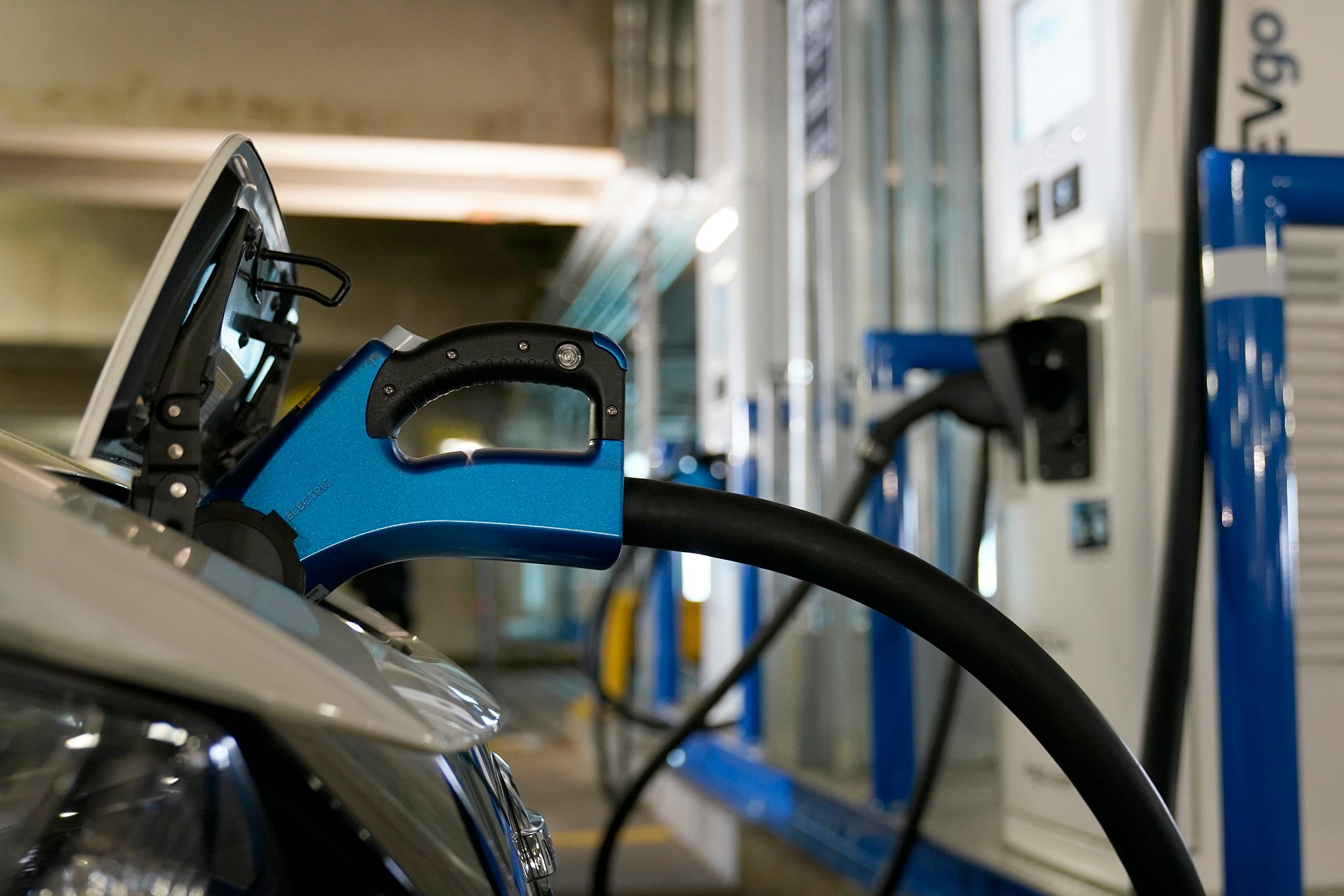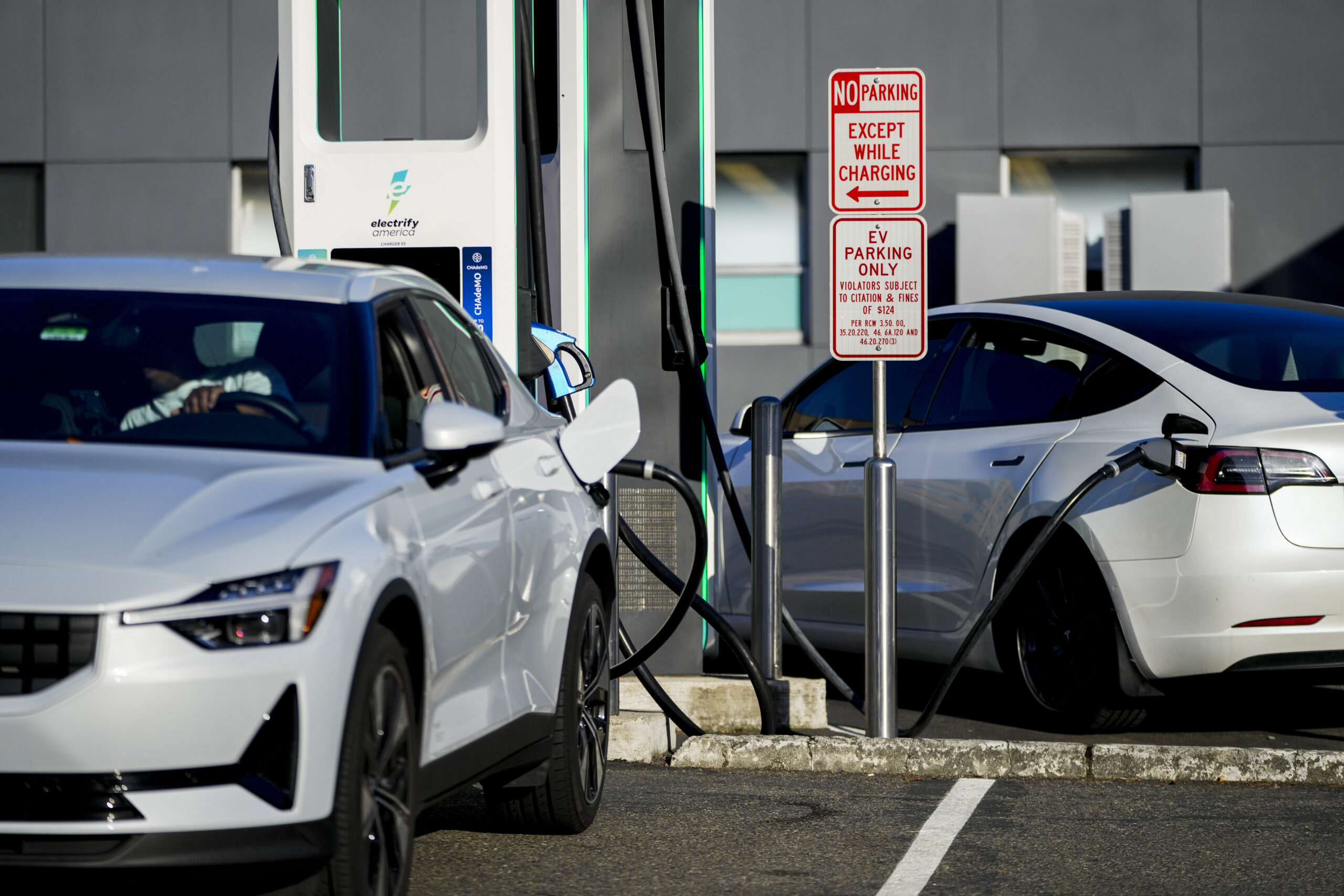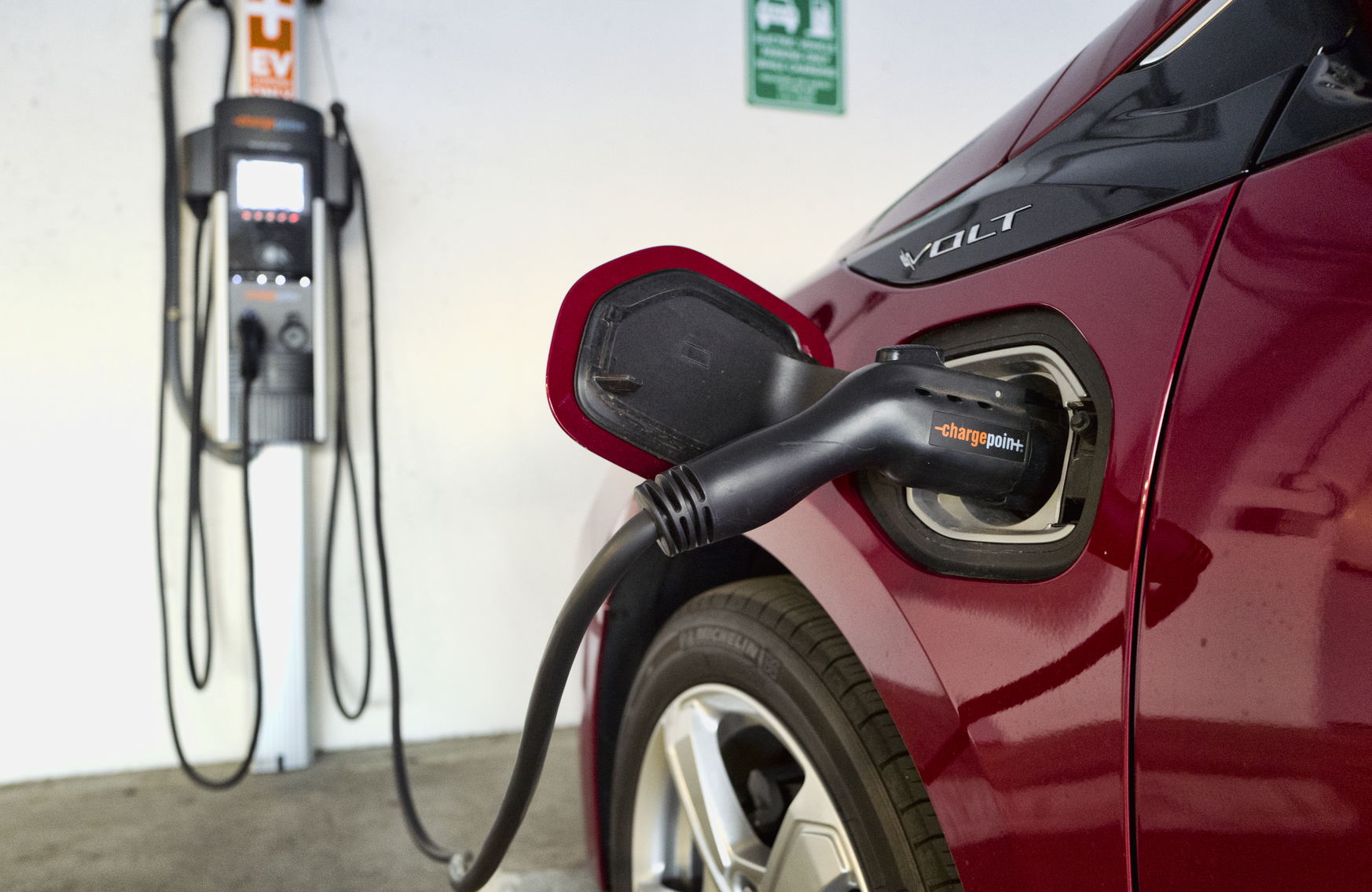A bipartisan effort to unlock federal funding to expand electric vehicle charging stations in Wisconsin is gaining steam in the state Legislature.
Two bills authored by State Sen. Howard Marklein, R-Spring Green, passed the state Senate this week with near unanimous support.
The measures are aimed at bringing Wisconsin’s fledgling electric vehicle charging infrastructure into compliance with the federal Bipartisan Infrastructure Law. If successful, they’d unlock around $78 million in federal funding to build what are called Level 3 DC Fast Electric Vehicle Charging Stations every 50 miles on major state highways.
News with a little more humanity
WPR’s “Wisconsin Today” newsletter keeps you connected to the state you love without feeling overwhelmed. No paywall. No agenda. No corporate filter.
Until current state law — which only allows regulated utilities to charge for electricity — is changed, the funding is out of reach.
On Wednesday, the Wisconsin Senate passed both bills by a margin of 30-2.
One bill would create an exemption from utility regulations for private businesses that own and operate vehicle charging stations, require those stations to charge by the kilowatt-hour rather than per-hour. The other would authorize the Wisconsin Department of Transportation to use the federal funds to expand charging station infrastructure.
Clean Wisconsin Government Relations Director Erik Kanter said Wisconsin is an outlier when it comes to regulating charging stations.
“Wisconsin and Nebraska are the only two states who haven’t made these changes or have these changes already in statute,” Kanter said. “So we’re sort of at the tail end of this. So, we need these bills to pass so that we can access this funding and get EV charging infrastructure built out in Wisconsin.”
While the bills have wide ranging support from utility companies, electric cooperatives, conservation groups and local governments, concerns have been raised about how they treat municipalities that have already installed electric vehicle charging stations.
Local governments are generally prohibited from owning, operating or leasing the stations under the legislation, but amendments to one of the bills allow municipalities to own slower Level 1 and Level 2 stations and offer them for public use so long as the local government “charges a reasonable fee for use of the charger.”
Eau Claire County Recycling and Sustainability Coordinator Regan Watts said the county spent around $76,000 when it installed three Level 2 chargers in 2022.
“So, either we would be covering the bill on that electricity usage or we would just not provide it to the public, which is not what our aim was initially,” Watts said. “We wanted to provide them as a service to the public for those using our facilities, if they wanted to, and then for our own fleet.”
Watts said the county was only interested in recouping its costs with the chargers and didn’t intend to make a profit. Still, she said, the county supports the legislation.
“We know the funding is important,” Watts said. “And for the state at large, it’s important that those funding comes through.”
With the Senate’s blessing, the bills now head back to the Wisconsin Assembly, which passed a similar version of the plans earlier this session.
Wisconsin Public Radio, © Copyright 2026, Board of Regents of the University of Wisconsin System and Wisconsin Educational Communications Board.



